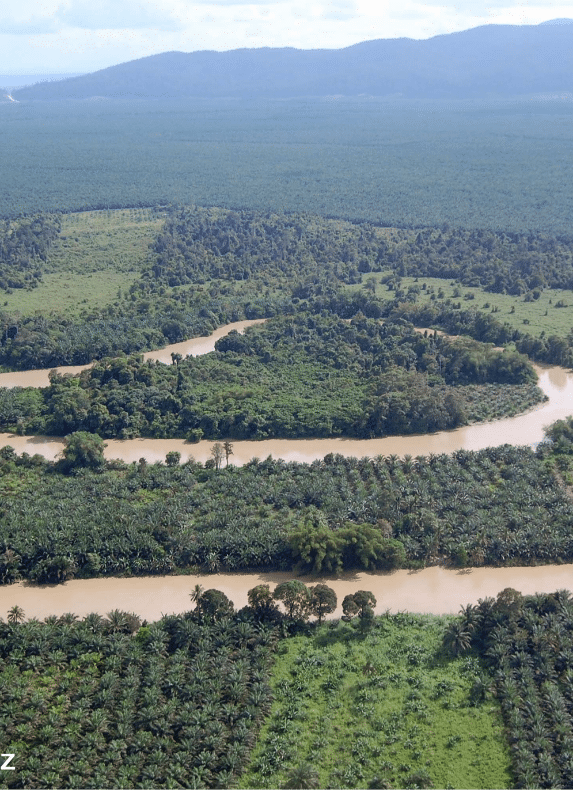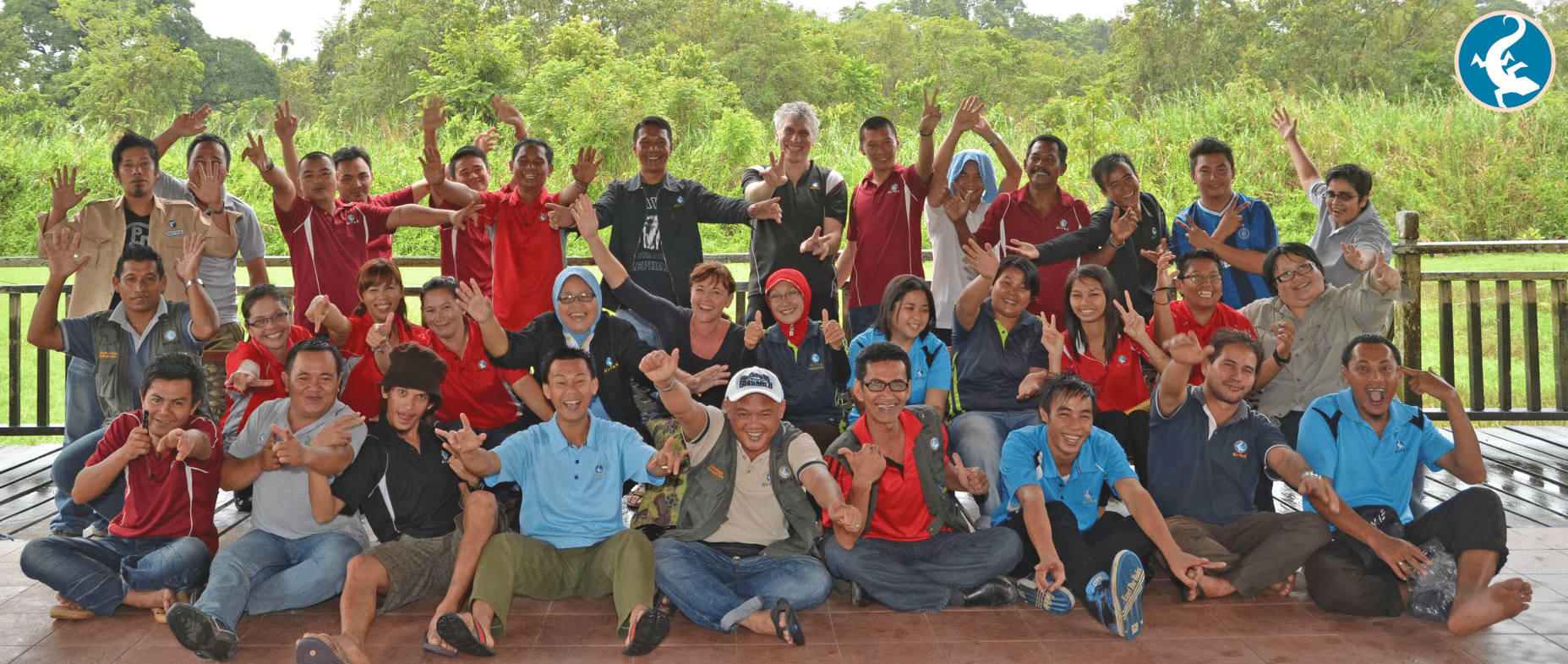When I was a child, documentaries and news on television opened my eyes towards the poor state of our wildlife, especially orangutans and elephants, and their struggle to survive. Habitat loss, deforestation, illegal hunting, wildlife trafficking, conflict with humans, are among some of the many threats faced by our wildlife. I still remember the time when I asked my daddy, “Hey dad, how can I be a Hero for the orangutans?” and he said, “You can be a veterinarian or zoo keeper so that you can interact with wildlife every day.” Since then, being a zoo keeper has been my dream job!
Well I know it was a bit funny, especially when I shared it with my childhood friends, given our scanty exposure to wildlife or environmental issues, growing up within a palm oil estate. Reflecting back, I can say our generation as kids, lacked awareness and knowledge about the importance of conserving and preserving our natural heritage.

View of Kinabatangan river and Kinabatangan Wildlife Sanctuary; rainforests fragmented by palm oil plantations are clearly visible. Picture credits: HUTAN
Therefore, I was extremely grateful when I got the opportunity to be an Educator at one of the Community based Conservation NGO based in Kinabatangan, known as HUTAN-Kinabatangan Orangutan Conservation Programme right after my diploma studies. Working in a community-based conservation initiative has changed my perception, where the only way to be a part of conservation is not just to be a zookeeper, but everyone can play a role to be a HERO! By dedicating myself to this field as an educator, I believe I can help people in understanding the importance of conservation to make the earth a better place to live.
“No effort betrays the results”, I hope that one day we have more of our own local conservation specialists in Malaysia, especially in Sabah.
Well now, let me usher you on an amazing journey to learn more about conservation work that we at HUTAN have been doing so far. HUTAN is a NGO that has worked for Orangutan conservation since 1998, based in Sukau Village, downstream Kinabatangan river, the longest river in Sabah, Malaysia. Today, our programme employs more than 60 skilled staff from the local Sungai community. With a plethora of biological diversity, this area boasts ten species of Primates including Orangutans and Proboscis Monkey, and eight species of Hornbill making Kinabatangan a tempting travel destination for your bucket list!
HUTAN’s mission is to conserve threatened habitats and wildlife species in Sabah while promoting sustainable management of natural ecosystems, empowering local communities and developing mutually beneficial stakeholder partnerships. In order to ensure the effectiveness of conservation works, HUTAN has divided the workload to five different units with different aim and scope.

Graphical representation of the five units of HUTAN. Anticlockwise from top to bottom: Forest Restoration Unit, Wildlife and Survey Protection Unit, Orangutan Research Unit, Environmental and Awareness Program Unit and the Pangi Swiftlet Recovery Unit. Credits: Amanda
Diving deeper into our programs and efforts, our first unit, Orangutan Research Unit (OURs), aims to determine how to sustain viable Orangutan populations within degraded and fragmented landscapes. You can often find this team following wild habituated orangutans at our study site! Next is the Wildlife and Survey protection unit (WSP) with the objective to identify ways for people and wildlife to co-exist peacefully in the same environment. The WSP works for the protection of wildlife and its habitat through conflict mitigation and biodiversity monitoring.
Our next unit, The Forest Restoration unit is composed entirely of women. All of these wonder women are in charge of planting, maintaining, and monitoring seedlings of native tree species at selected reforestation sites within or adjacent to the Lower Kinabatangan Wildlife Sanctuary. This team was officially created in January 2008 and comprises 12 full-time staff assisted by 12 interns who rotate every month. Their success stories include planting over two hundred thousand trees and running a small tree nursery to provide seedlings for reforestation activities.

The success of our restoration work, view of the landscape, before and after replanting efforts. Today this reforested patch is being used by wildlife for feeding and movement. Picture credits: HUTAN
Next is the Pangi Swiftlet recovery unit, which is responsible for monitoring the colonies of swiftlets living in the caves of the Pangi limestone, one of the only patches of primary forest left in the floodplain. The birds are threatened by illegal harvesting of their nests that are used to produce edible nest soup. We work towards preventing illegal poaching while ensuring periodic yet sustainable harvesting.
To support our conservation work, we established the Hutan Environmental and Awareness Programme unit. This unit which I am in, is responsible to disseminate messages about conservation and sustainable use of our environment based on the findings of HUTAN’s efforts in the field, throughout schools in Sabah, including Kindergarten, Primary, Secondary, Universities, as well as community. Here I feel privileged to be a part of the team where I can communicate with the youth, with a hope that they will be aware and take action for a better environment today and tomorrow.
I hope this could give you a flavour of the work we do. That’s all for our stories, till the next time!


